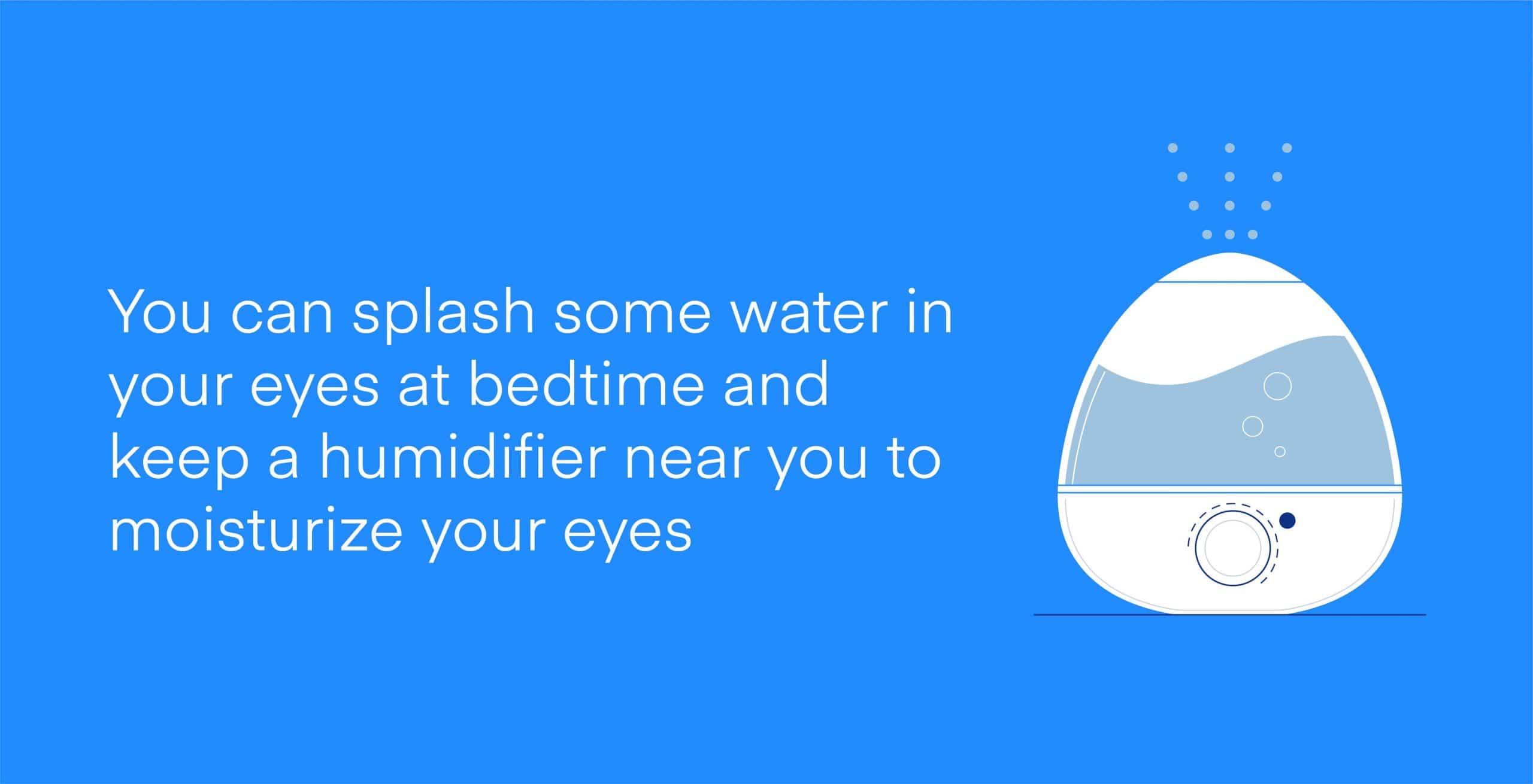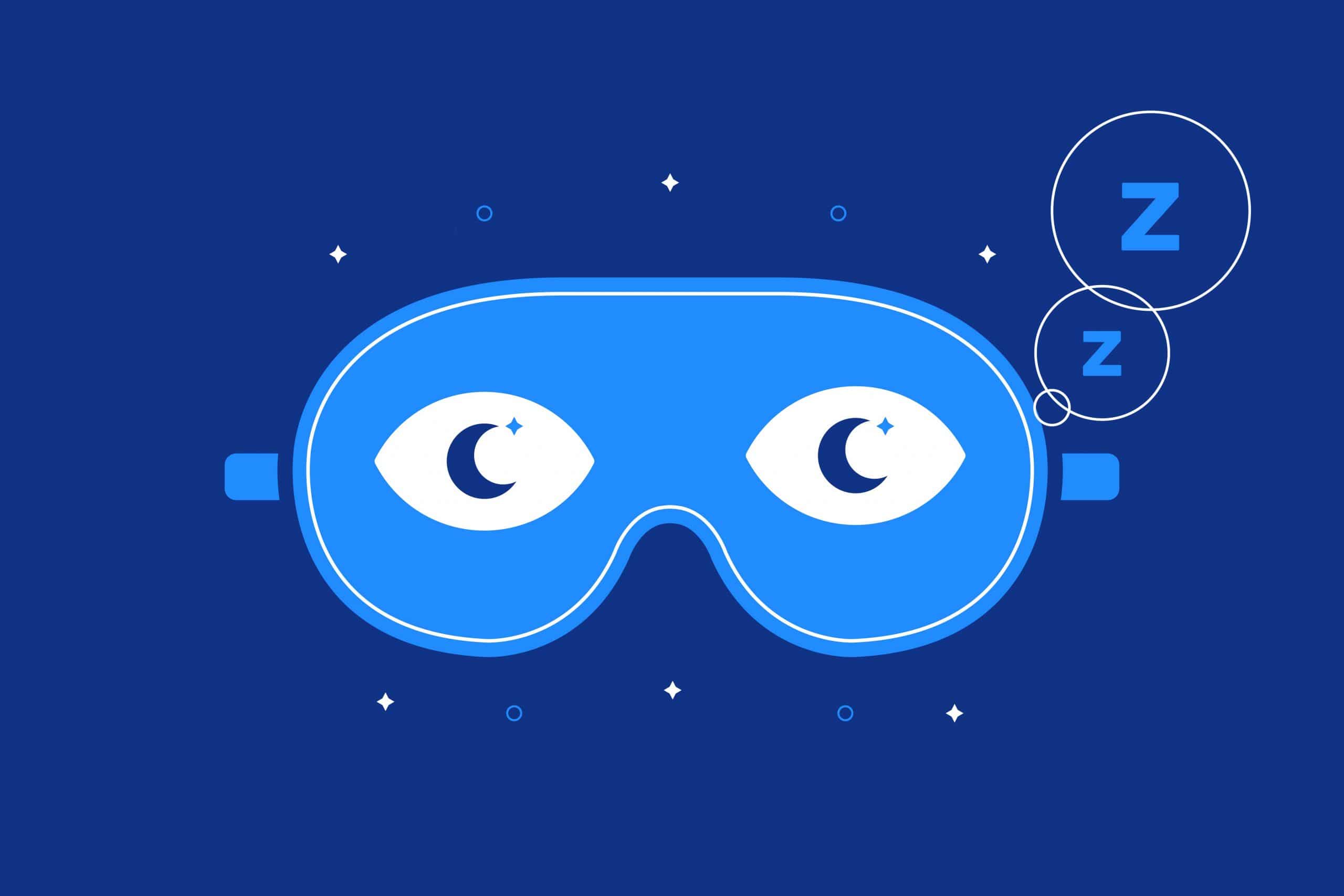Key Takeaways
- Possible But Not Recommended: While it is possible to sleep with your eyes open, doing so regularly can have negative effects on your health. Your eyes are designed to blink and close during sleep to protect and moisturize them. Sleeping with open eyes can lead to eye irritation, dryness, and blurred vision.
- Medical Conditions May Be The Cause: Some individuals sleep with their eyes partially or fully open due to underlying medical conditions such as nocturnal lagophthalmos, injured facial nerves, Bell’s Palsy, or autoimmune conditions. Seeking medical attention is essential if you suspect a medical cause for sleeping with your eyes open.
- Prevention and Treatment: To prevent or address sleeping with open eyes, it’s important to relax your body and mind before sleep, breathe slowly, focus on a fixed point, and try to clear your mind of thoughts. Additionally, consult a doctor if you suspect a medical issue causing this condition, as they can recommend treatments such as lubricating eye drops, eyelid weights, or surgical interventions depending on the underlying cause.
You may be wondering whether it’s even possible to sleep with your eyes open. The answer is yes, it’s possible, but we don’t recommend it because of long-term health effects. Though sometimes sleeping with your eyes open may allow you to relax your mind and body, doing so regularly can negatively impact your health.
“The eyes play a critical role in the timing of our sleep-wake cycle,” says Dr. Nayantara Santhi. “In humans, the synchronization of our internal biological clock to the environmental day/night cycle is mediated by the non-visual effects of light. A distinct class of eye cells called intrinsically photosensitive retinal ganglion cells (ipRGCs) convey light information from the eye to the circadian clock, which uses the information to set timing in our body.”
Some people are compelled to sleep with their eyes open because of certain underlying medical conditions. They may be sleeping with their eyes partially or fully open because their eyelids don’t close properly. It’s beneficial to seek medical attention at the earliest in such cases.
Side Effects of Sleeping with Eyes Open
It’s normal to sleep with our eyes closed because our eyelids block light, which stimulates our brain into wakefulness. Closing our eyes shuts off light sources to our retina, which is critical for sleep. Our body produces the sleep-inducing hormone melatonin, only when it perceives darkness around.
There’s a reason we have eyelids—they act as a protecting cover, shielding our eyes from dust, dirt, and irritants. Every time we blink, our eyes are coated with oils and mucus, keeping them nourished and hydrated. Shutting our eyelids for a prolonged period during sleep boosts eye health because it keeps our eyes moisturized and allows them to rest while our body rests. Sleeping with closed eyes is good for our eyes as well as our sleep quality. When you don’t sleep in this natural way, it affects both your sleep quality and eye health.
However, sleeping with your eyes open sometimes gives you the opportunity to sneak in some rest time. You can do it once in a while to effectively utilize time, but doing so regularly may lead to problems such as:
- Eye irritation, such as dryness or redness
- Burning sensation
- Blurry vision
- Sleep disruptions at bedtime
Steps to Train Yourself to Sleep with Eyes Open
Experts like Dr. Nayantara Santhi cannot advocate sleeping with your eyes open. “That should not be a recommendation and no one would recommend training for that.”
As an alternative to what is ultimately a self-destructive party trick, we would like to walk you through the steps needed to unwind and sleep well at night.
Relax Yourself
Pick the most secluded spot for yourself, ruling out the chances of being disturbed while sleeping. Then practice progressive muscle relaxation to relax your entire body. You can do this by tensing and then relaxing all of your muscles, starting from your toes and moving up to your neck and head. This physiological process precedes sleep, and replicating it prepares your body to sleep.
Breathe Slow
Pay attention to your breathing. Slowly counting can slow down your breathing.
Focus on Something
Choose a point to focus on. It shouldn’t be a bright object or light because that will disrupt your sleep. You can fix your gaze on any stagnant object or point to prevent your vision from wandering. When your eyes keep moving, it delays the process of sleep.
Let Your Thoughts Flow
The ultimate goal is to attain a clear mind, free of thoughts, making you calm and peaceful. You can consciously think of happy and positive things to soothe your nerves and prepare for rest, helping you fall asleep quickly.
Medical Causes of Sleeping With Eyes Open
Sometimes neurological problems or physical abnormalities may prevent a person from closing their eyes while sleeping. With time, you may outgrow some of these problems, but certain cases require medical intervention.
Nocturnal Lagophthalmos

Nocturnal lagophthalmos is a condition in which the affected people are unable to close their eyes properly during sleep. It affects 1.4 percent of the adult population. The term “Lagophthalmos” is derived from the Greek word, “lagos,” referring to the concept of rabbits sleeping with their eyes open.
Certain physical abnormalities of the face, eyes, eyelids, or ingrown eyelashes may cause nocturnal lagophthalmos.
Excessive eye dryness may also lead to this condition. You can splash some water in your eyes at bedtime and keep a humidifier near you to moisturize your eyes. If your problem persists and causes sleep disruptions, we recommend consulting your doctor.
Depending on the cause of nocturnal lagophthalmos, your doctor may suggest surgical or non-surgical interventions, such as using moisture goggles or eye drops if your eyes are dry.
“Nocturnal Lagopthalamos refers to a condition characterized by the inability to close eyelids during sleep,” notes Dr. Santhi. “Among other things eyelid closure during sleep helps to protect the eye from damage from dust, dirt, and irritants. Consequently, not being able to close eyelids during sleep can cause eye dryness. A study by Verified Source National Library of Medicine (NIH) World’s largest medical library, making biomedical data and information more accessible. View source Takahashi et al, 2020 was associated with poor sleep.”
Injured Facial Nerves
Injuries from an accident or cosmetic surgery can damage the nerves that control the eyelid movement. Sometimes corrective surgery for ptosis (drooping upper eyelid due to weak eyelid muscles) may damage nearby nerves, making it hard to close the eyes completely.
Bell’s Palsy
Bell’s Palsy causes temporary weakness or paralysis of the nerves that control the face, eyelids, and neck. An affected person may not be able to close their eyes while sleeping. Most people recover from this condition with or without treatment. However, consulting a doctor speeds up the recovery process, preventing chances of damage or injury to the eyes. Your doctor may suggest medications or physical therapy; surgery is rarely required for treating Bell’s Palsy.
Autoimmune Conditions
Some auto-immune conditions such as Guillain-Barré syndrome affect nerves in the body, causing loss of control over facial and eyelid muscles. Those diagnosed with this condition find it difficult to sleep with closed eyes.
FAQs
What are the pros and cons of sleeping with open eyes?
It isn’t normal to sleep with your eyes open, so we don’t recommend doing so. It may lead to dryness in the eyes causing sleep disruptions. If for some reason you can’t close your eyes during sleep and it starts impacting your sleep quality, we suggest talking with your a doctor. In some instances, people may sleep with partially open eyes without realizing because it doesn’t disrupt their sleep. That’s normal, and doesn’t require any medical intervention.
Is lagophthalmos a dangerous condition?
Lagophthalmos isn’t a dangerous condition, but consulting a doctor helps to identify the cause and prevent further damage to the eyes. If dryness in the eyes is triggering the problem, doctors may prescribe drops to lubricate the eyes, encouraging tear production and eliminating dryness.
Doctors may recommend an external eyelid weight, worn on your upper eyelids at night, or surgical tape to help keep your eyes closed. However, sometimes surgical intervention may be needed. The most common surgical treatment for lagophthalmos is the insertion of a gold weight implant in the upper eyelid. It helps the eyelids close and protects your cornea without harming your vision.
What causes Bell’s Palsy?
The exact cause of Bell’s Palsy isn’t known yet. It may be a reaction to a viral infection resulting in inflammation of facial nerves that control facial muscles and eyelid movements. Bell’s Palsy is also known as facial palsy and can affect people irrespective of their age.
Can you sleep deeply with your eyes open?
No. It’s difficult to get deep sleep while sleeping with your eyes open. Your eyes may get dry, causing sleep disruptions. Distractions in your field of vision prevent deep sleep.
Conclusion
Sleeping with your eyes open may serve as a quick dose of relaxation on a busy day. The idea of stealing a quick nap while pretending to be awake seems exciting, but it’s good to exercise caution while sleeping with open eyes.
However, sleeping with your eyes open comes with a couple of risks: you can damage your eyes and your sleep quality. Most experts advise avoiding this and other behaviors that can damage your eyes, such as sleeping with contacts in.
About the author
Mitchell Tollsen is a graduate student and a freelance writer who’s contributed to the Early Bird blog for three years. Mitchell’s always been fascinated by the science of sleep and the restorative processes our bodies undergo when at rest. The self-titled “Sleep Expert” is always looking for ways to improve his shut-eye, and throughout the years has implemented numerous lifestyle changes and tried dozens of sleep-promoting gadgets to determine the best ways to truly get better rest.
View all posts




